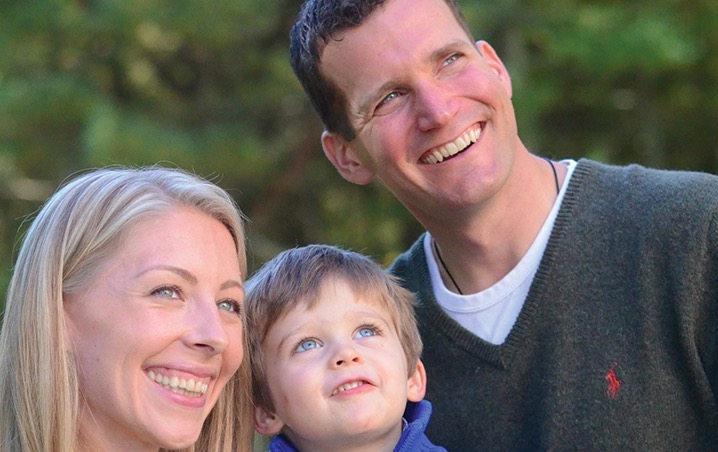By Kristen Hanson
Source: HudsonValleyOne.com
Assemblyman Kevin Cahill did well when he voted against previous bills to legalize assisted suicide in New York. Assisted suicide bills are inherently discriminatory and they make for dangerous public policy that puts a great number of vulnerable people at risk of deadly harm through mistakes, abuse and coercion.
On Dec. 30, 2017, my husband and the love of my life, JJ Hanson, passed away from terminal brain cancer. He was only 36 years old. Throughout his life, JJ served other people. He was a volunteer fireman, a Marine Corps war veteran, he served New York state under governors Spitzer and Patterson, and he was the Budget Director of Ulster County. And after JJ was diagnosed with terminal brain cancer in 2014, he joined the Patients Rights Action Fund, devoting his final days to protecting vulnerable patients from the legalization of assisted suicide.
Before JJ died, I promised him that I would continue to share his story and fight to protect terminal patients like him from the legalization of assisted suicide.
After a seizure unexpectedly sent JJ to the hospital in May 2014, we were told that he had Glioblastoma Multiforme (GBM) — the deadliest form of brain cancer. The neurosurgeon said it was inoperable, and gave JJ four months to live. Three different doctors told us there was nothing we could do.
In an instant, JJ, our 1-year-old son and I went from living the American dream to living a nightmare.
But thankfully, we didn’t listen to those doctors or that grim prognosis. JJ had great success with treatment.
JJ outlived his prognosis by three years, three months and 18 days. His motto became, “Every Day is a Gift” — and it truly was. During those three years our son created priceless memories with JJ and we welcomed a second son into the world. We would have missed out on so much if JJ had been offered — and had accepted — assisted suicide.
If this legislation was legal in New York when JJ was diagnosed, he could have requested and had lethal medication on his nightstand. This thought is particularly scary when considering that during his fifth month of treatment JJ was struggling physically and emotionally, and he questioned if life was worth living.
“Am I too much of a burden to my family?”
“Is this worth it?”
“Would it be easier for everyone if I just ended my life?”
He thought about it. He considered it. But JJ didn’t end his life then. If he had assisted suicide pills with him in those darkest moments, though, he might have taken them. And you can’t undo that.
A few weeks later when JJ was feeling better and his cancer was in remission, he told me what he needed during those dark moments was help, not assisted suicide. The experience made JJ realize that these laws abandon vulnerable patients who can experience periods of depression at any point following their diagnosis.
We’ll never know how many patients were depressed when they took the lethal medication because no one is required to follow-up with patients once they receive the prescription. How many people prematurely end their lives through assisted suicide that could have gone on to live months, years, and decades longer?
Having worked in local and state government, JJ also understood that assisted suicide laws are impossible to safely regulate and, no matter how many supposed “safeguards” these laws include, vulnerable people will be put at risk when suicide becomes a medical treatment.
These laws also result in less choice for some patients because they create perverse incentives for health insurance companies to deny patients coverage for the care they deserve and offer assisted suicide instead. It has happened in Oregon, the state where assisted suicide has been legal the longest in the U.S., and it has started happening in states that recently passed assisted suicide legislation, like California.
When JJ met with Assemblyman Cahill in 2016, he outlined why assisted suicide is bad public policy, urging him not to focus on an individual patient when he voted on this legislation, but consider instead the way that assisted suicide injects governmental pressure and profit-driven health insurance decisions into everyone’s end of life choices.
I urge Assemblyman Cahill to work on improving multidisciplinary end of life care, rather than advancing this dangerous public policy. Assisted suicide leaves a great many with suicide as the only “treatment” to which they have equal access.
Kristen Hanson is a New Yorker and Community Relations Advocate with the Patients Rights Action Fund, an organization that opposes assisted suicide.
